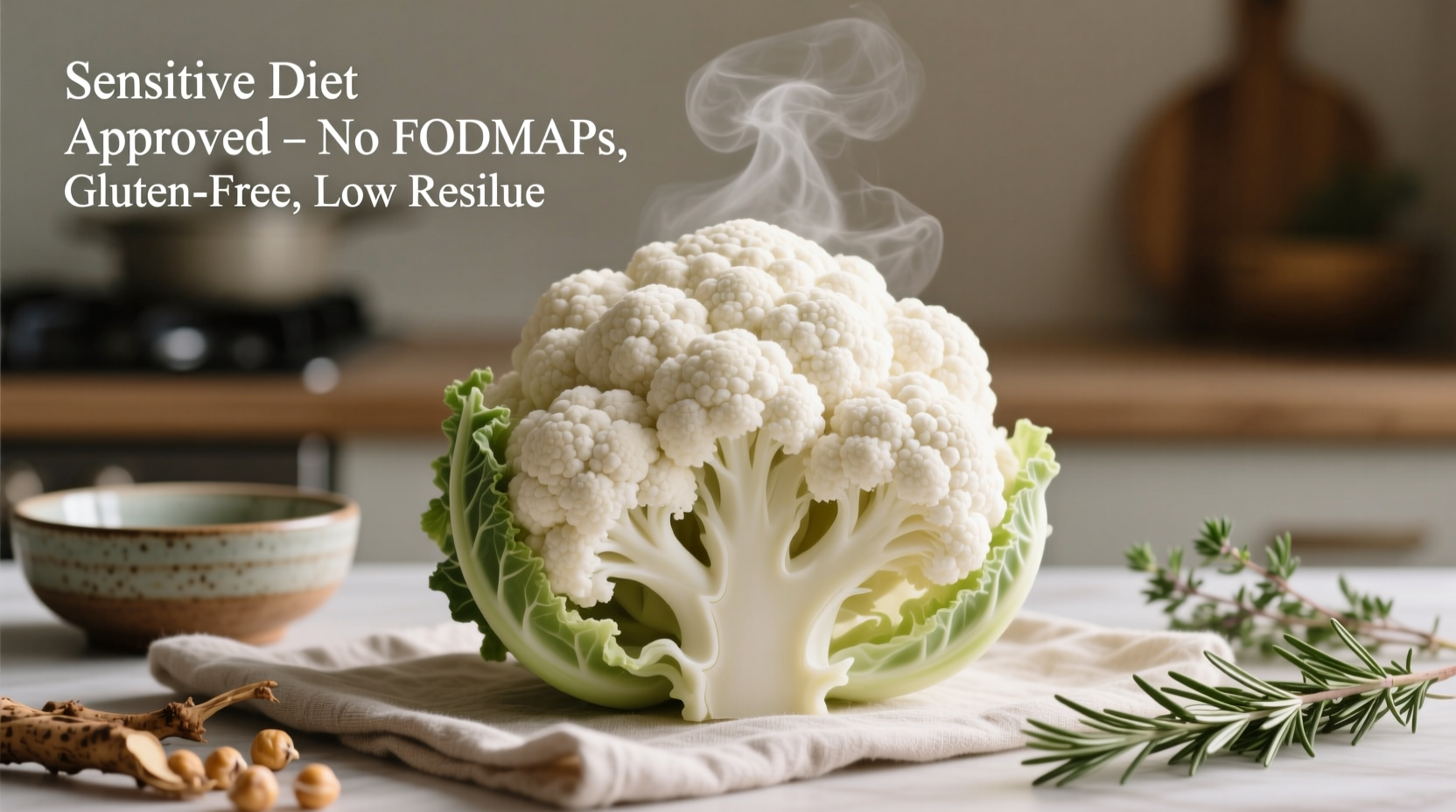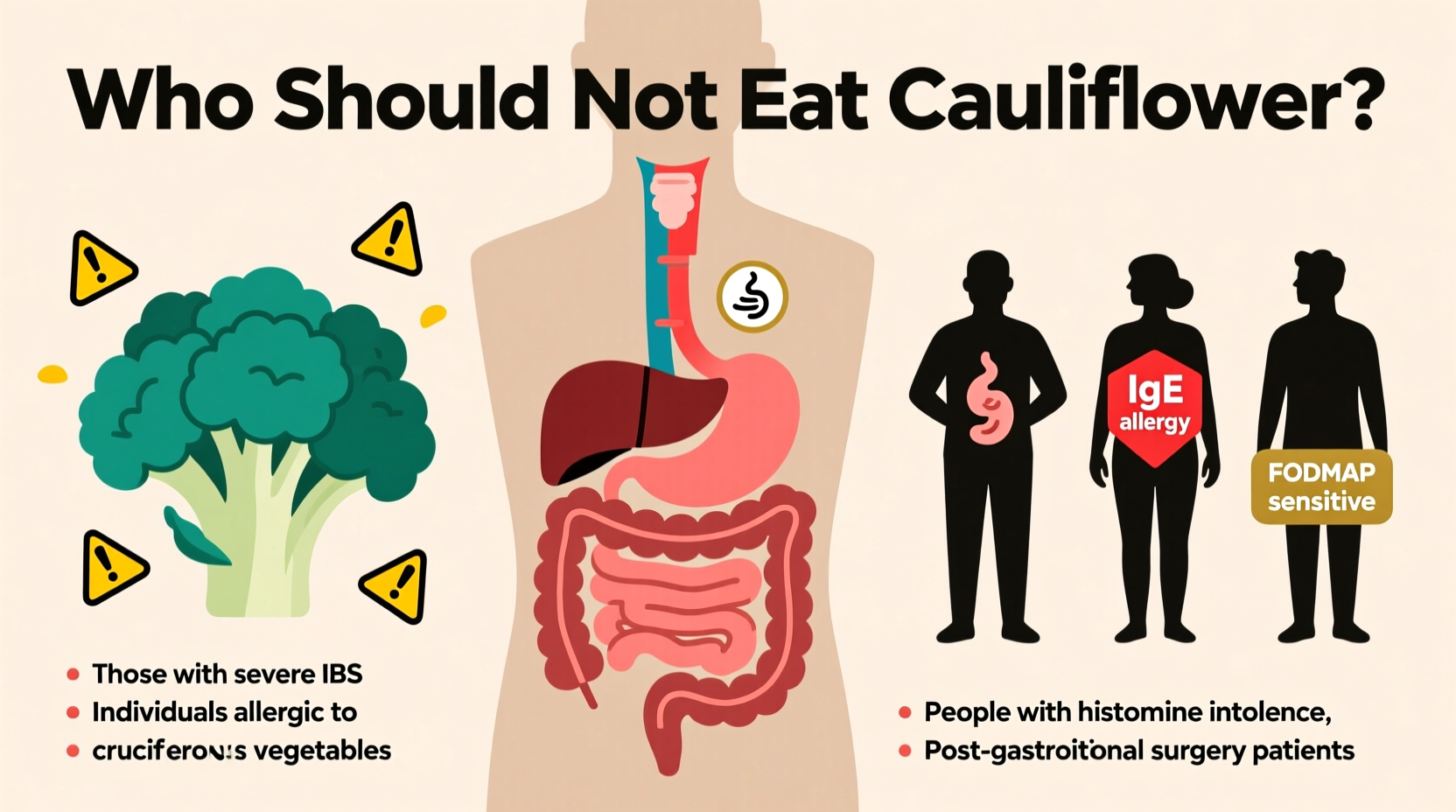Discover exactly who needs to be cautious with this popular vegetable and why certain health conditions make cauliflower potentially problematic. This evidence-based guide explains the specific medical reasons behind cauliflower restrictions and offers practical alternatives for those who need to limit their intake.
Understanding Cauliflower's Health Implications
Cauliflower has earned its "superfood" status for good reason—it's packed with vitamins C and K, fiber, and antioxidants. However, this cruciferous vegetable contains compounds that can cause problems for specific health conditions. Unlike trendy diet advice, this information comes from medical research and clinical practice.
According to the National Institutes of Health, approximately 20 million Americans have thyroid conditions that could be affected by goitrogenic foods like cauliflower. Meanwhile, the International Foundation for Gastrointestinal Disorders reports that 10-15% of the global population suffers from IBS, which can be triggered by high-FODMAP vegetables.

Who Should Limit or Avoid Cauliflower
Thyroid Condition Patients
Cauliflower contains goitrogens—compounds that can interfere with thyroid function by inhibiting iodine uptake. For individuals with hypothyroidism or Hashimoto's thyroiditis, consuming large amounts of raw cauliflower may exacerbate symptoms.
The American Thyroid Association notes that cooking significantly reduces goitrogen levels, making moderate consumption of cooked cauliflower generally safe for most thyroid patients. However, those with severe iodine deficiency or uncontrolled thyroid conditions should consult their healthcare provider about appropriate intake levels.
Digestive Disorder Sufferers
People with irritable bowel syndrome (IBS), Crohn's disease, or ulcerative colitis often need to limit cauliflower consumption. This vegetable contains raffinose, a complex sugar that gut bacteria ferment, producing gas and bloating.
| Digestive Condition | Cauliflower Tolerance Level | Recommended Alternative |
|---|---|---|
| IBS (FODMAP-sensitive) | Low (especially raw) | Zucchini, carrots |
| Crohn's Disease (active flare) | Very low | White potatoes, peeled cucumbers |
| Ulcerative Colitis | Moderate when cooked | Butternut squash, spinach |
| Post-colon surgery | Avoid initially | Applesauce, mashed bananas |
Kidney Disease Patients
For those managing chronic kidney disease, cauliflower's potassium content requires monitoring. While lower in potassium than many vegetables (about 275mg per cup compared to potatoes' 900mg), patients on strict potassium restrictions may need to limit portions.
The National Kidney Foundation recommends that stage 3-5 kidney disease patients work with a renal dietitian to determine appropriate vegetable portions based on individual lab values and treatment plans.
People Taking Blood Thinners
Cauliflower contains significant vitamin K (about 16 mcg per cup), which plays a crucial role in blood clotting. For patients taking warfarin (Coumadin) or similar anticoagulants, sudden changes in vitamin K intake can interfere with medication effectiveness.
According to the American Heart Association, consistency is key—rather than avoiding cauliflower completely, patients should maintain a consistent daily intake of vitamin K and discuss dietary plans with their healthcare provider.
Those with Cauliflower Allergies
Though rare, cruciferous vegetable allergies do occur. Symptoms may include itching, swelling, digestive distress, or in severe cases, anaphylaxis. The American Academy of Allergy, Asthma & Immunology reports that cross-reactivity can occur between different cruciferous vegetables like broccoli, cabbage, and cauliflower.
Practical Guidance for Cauliflower Consumption
When Small Amounts Might Be Tolerated
Many people mistakenly believe they must eliminate cauliflower completely. In reality, individual tolerance varies significantly. Consider these factors:
- Cooking method matters: Steaming or boiling reduces goitrogens and FODMAPs compared to raw consumption
- Portion size is critical: 1/4 cup may be tolerable when 1 cup causes symptoms
- Timing affects tolerance: Consuming with other foods may reduce digestive issues
- Individual variation: Genetic factors influence how your body processes these compounds
Smart Substitutes for Cauliflower
When you need to reduce cauliflower intake, these alternatives provide similar textures with fewer complications:
- Riced alternatives: Jicama rice (low FODMAP), parsnip rice (lower goitrogens)
- Mashed substitutes: Parsnips, peeled zucchini, or butternut squash
- Steak alternatives: Portobello mushrooms or eggplant slices
- Soup bases: Celery root or peeled cucumbers for creamy textures
When to Consult a Healthcare Professional
If you experience persistent digestive discomfort, thyroid symptoms, or medication interactions after eating cauliflower, schedule an appointment with:
- A registered dietitian specializing in your specific condition
- Your primary care physician for symptom evaluation
- A gastroenterologist for digestive concerns
- An endocrinologist for thyroid-related issues
Remember that individual responses vary significantly—what affects one person severely may cause no issues for another. Professional guidance helps determine your personal tolerance levels rather than following blanket restrictions.











 浙公网安备
33010002000092号
浙公网安备
33010002000092号 浙B2-20120091-4
浙B2-20120091-4